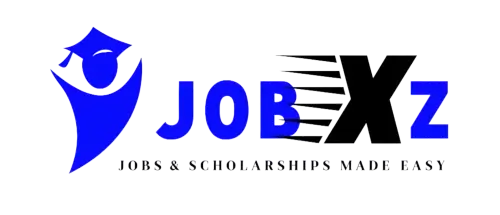
The Best Way to Get Strong Scholarship Recommendation Letters
This guide goes through the whole process, from picking the proper person to making a perfect request, including guidance from scholarship experts, Ivy League grads, and people who work in admissions
You helped your students or Employees write a great essay and put together a great CV. The letter of reference is one important part of the scholarship application that you can't manage directly.
The Best Way to Get Strong Scholarship Recommendation Letters
This document is an important third-party confirmation of your student's character, work ethic, and potential. Jocelyn fromThe Scholarship Systemsays that a generic letter can be a red signal, while a powerful, thorough letter can be "the cherry on top" that makes the difference for your student.
So, how can you make sure these letters are as strong as they can be?
Why Letters of Recommendation Are So Important
Recommendation letters are used by scholarship committees to:
- Check Character and Fit: They seek for signs of traits like resilience, curiosity, leadership, and teamwork that grades alone can't indicate
- Check the Application Again: The letter should match and support the tale provided in the essays and CV, making a strong and consistent story
- Get a Professional Opinion: A teacher or mentor can tell you how likely your student is to succeed in the future in a way that a parent cannot
In a competitive field, a glowing, detailed letter can be what makes your student stand out
Step 1: Pick the Right Recommender
The idea is to choose people who know your student well, not just those with big titles
- Ideal Recommenders:
- Teachers, preferably from the junior or senior year, who taught a core subject
- Counselors: If they know your pupil well and have a close relationship with them
- Coaches, club advisors, or employers: Anyone who has overseen them in an organized situation and can talk about their talents and character
- The "Strong Letter" Test: Your student should ask, "Could you please write me a strong letter of recommendation?" This one word allows the person writing the letter an easy way out if they don't feel they can strongly support them, which stops them from writing a generic, mandatory letter
- Variety is Important: Don't get all of your letters from the same domain Instead of just asking three STEM professors, try to get a variety of people, like a STEM teacher, a humanities teacher, and a coach or employer. This gives you a full picture of your student's skills and personality
Step 2: Master the Ask (Timing and Method)
A professional opening sets the tone for a letter that is of excellent quality . Timing is everything: Give your recommenders at least a month, if not more, to write you a letter. They get a lot of requests, so allowing them enough time shows respect and makes it more likely that they will write a thoughtful message
Ask in Person (or on Video Call): It's always best to ask in person . It's more intimate and tougher to say no to If that’s impossible, a well-crafted, respectful email is the next best alternative.
Use a template from Common Appif needed
- Give Background: In the first request, your student should quickly say what the letter is for (such a certain scholarship or college applications) and why they chose that individual in particular.
Step 3: The "Brag Sheet" and Other Support Materials Are the Secret Weapon
This is the most crucial stage for ensuring a superb letter. You can't control what the recommender writes, but you can make a big difference by making their work as easy as possible A "Brag Sheet" is a set of papers that gives the individual writing the letter all the information they need to make a strong, personal, and thorough letter It should include:
- Your Student's Resume: This gives a short look at their academic and extracurricular activities
- An updated transcript that gives academic background
- A "Brag Sheet" or Recommendation Profile: This is the most important part of the package Your pupil writes down:
- 3–4 important values or traits they want the letter to bring out (for example, intellectual curiosity, leadership, or resilience)
For each trait, tell a story or give an example. This is very important! They shouldn't say, "I'm a leader" Instead, they should say, "Please feel free to mention my initiative in starting the Coding Club and how I got 20 members and a faculty advisor" .
This shows that I can lead and keep going
Their Future Goals: What do they want to learn? What kind of job do they want?.
This lets the person who is recommending you link your past work to your future potential
A formal cover letter: This is a courteous letter that asks for the letter, mentions all the schools or scholarships and their deadlines, and thanks the person who wrote the letter for their time .
"Please stress my collaboration in that letter," I even told them, "because this school looks for collaboration".
You are essentially telling your teacher what to write about, which saves them time and ensures the letter hits the appropriate notes"
Step 4: The Follow-Through and Thank You
The procedure doesn't stop when you give them the brag sheet
- Send a Gentle Reminder: About ten days before the deadline, have your student send a courteous email to check in and make sure the recommender is still on schedule.
- Give up your FERPA rights: When you apply, always give up the right to see the letters. This tells the committee that the recommendation is honest and reliable
Say Thank You in a Professional Way: Writing a thank-you note by hand is an elegant and memorable way to develop a lasting relationship.
An email that comes from the heart is also fine It's crucial to say thank you since your pupil might need to ask this person for another favor in the future.
Last Word: Getting Ready Gives You Power
Getting a strong letter of recommendation for a scholarship is not something that happens by itself.
By helping your student make smart choices, ask questions in a professional way, and give their recommenders a full "brag sheet," you turn this seemingly outside factor into a key part of their application.
This proactive approach shows that you are mature and organized, which scholarship committees love to see It also greatly raises the chances of getting a letter that doesn't just check a box but also actively supports your student's quest.
Reminder: Start preparing the "Brag Sheet" today and set reminders for follow-ups Check CollegeDatafor additional resources!






